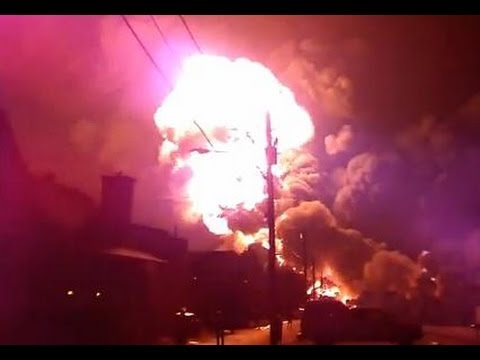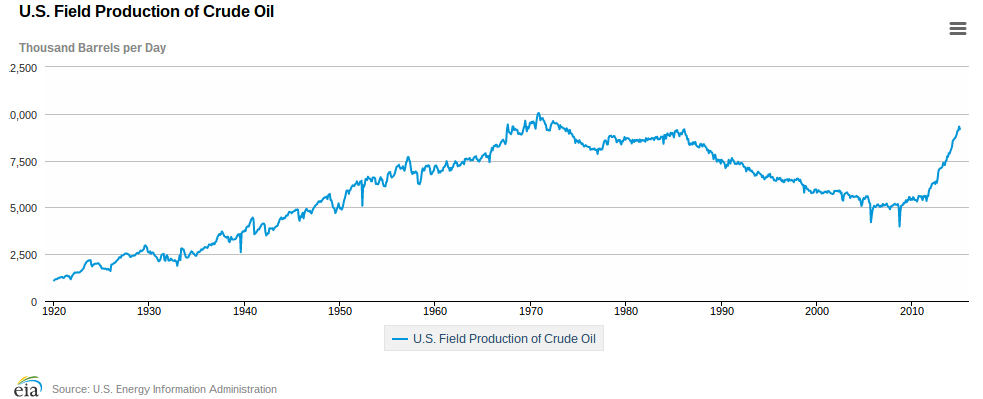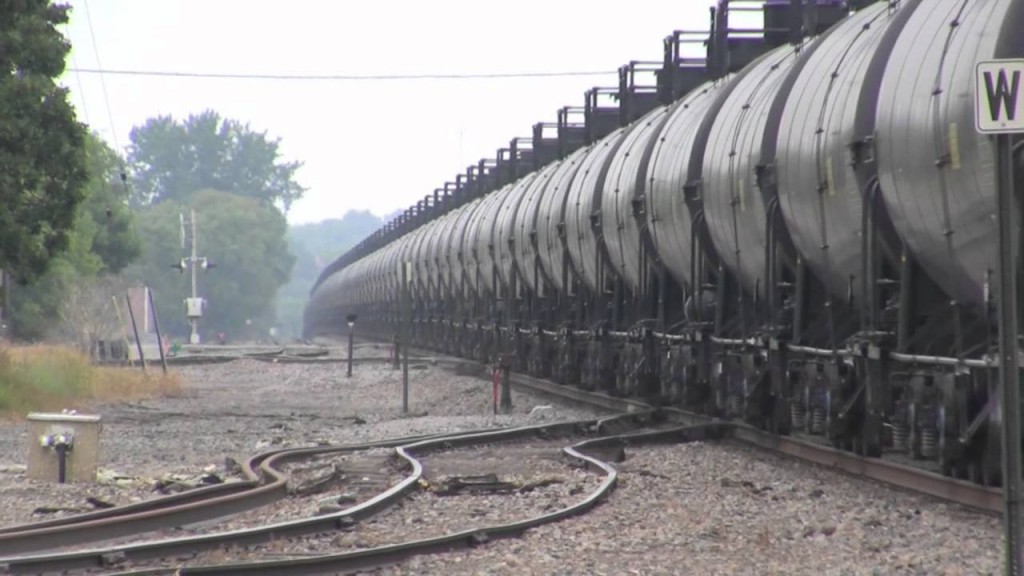Last week “scores of concerned Baltimore residents” protested the dangers of exploding oil trains![]() . Protesters note that oil trains follow a winding route through Baltimore that puts large swaths of Baltimore within the danger zone. In my neck of the woods the Phillips 66 refinery in San Luis Obispo is seeking to start taking crude oil by train from the Bakken, and there is a protest effort afoot with plans to protest at the planning commission meeting and there was a rally held in San Jose over the weekend.
. Protesters note that oil trains follow a winding route through Baltimore that puts large swaths of Baltimore within the danger zone. In my neck of the woods the Phillips 66 refinery in San Luis Obispo is seeking to start taking crude oil by train from the Bakken, and there is a protest effort afoot with plans to protest at the planning commission meeting and there was a rally held in San Jose over the weekend.
As well meaning as these protests are, let me suggest that opposing oil trains as an explosion/fire risk is the wrong focus. That’s missing the real problem – the grossly negative environmental and climate damage from fossil fuel consumption – while focusing on something which is an engineering problem – fixing rail safety.
There is a real risk from oil trains. The rate of crude oil shipments by rail in the U.S. is rapidly rising due to the oil production boom at shale formations in North Dakota and elsewhere, as well as the tar sands oil being produced in Alberta. Because of a lack of oil pipelines to those areas, the oil industry has had to turn to rail shipping.
 Unfortunately after decades of infrastructure neglect, the rail system see’s routine train derailments. It’s not a problem when a train full of household goods derails, but when it’s explosive crude oil the result can be a devastating explosion and fire that’s nearly impossible to extinguish. Generally fire crews elect to just let the fires burn themselves out because their equipment is insufficient to fight the ferocious blaze.
Unfortunately after decades of infrastructure neglect, the rail system see’s routine train derailments. It’s not a problem when a train full of household goods derails, but when it’s explosive crude oil the result can be a devastating explosion and fire that’s nearly impossible to extinguish. Generally fire crews elect to just let the fires burn themselves out because their equipment is insufficient to fight the ferocious blaze.
That means the news is full of fiery scenes like the one shown here – making it look like oil trains are the immediate risk. (you’ll see some oil train videos linked below)
Oil trains are instead a symptom of another problem, our dependence on fossil fuels and the collective dragging-of-heels about taking any real action to stop that dependence.

Domestic oil production peaked October 1970 at 10,013 thousand barrels per day, fell dramatically. Since 2005 it has climbed rapidly, thanks to fracking, to 9,185 thousand barrels per day in Jan 2015
This is US crude oil production since 1920. The sharp increase in production since 2010ish is due to the Bakken fields, and other areas where fracking is taking place. The Alberta tar sands oil is not included in this chart, FWIW.
A big protest movement against oil train explosions would result not in the elimination of fossil fuels, but the elimination of explosions. The powers-that-be will focus on the immediate problem, erasing the negative image appearing in the news. They’ll work on rail safety and improved rail cars and on building pipelines, because pipelines are supposedly safer. Over time the exploding rail cars will disappear from the news… but …. we’ll all still be stuck with oil products, because nothing will have been done about fossil fuel dependence.
The oil companies wouldn’t be drilling for or shipping crude oil anywhere if we stopped buying their products.
The climate and environment wouldn’t be getting ravaged by toxins and pollution and greenhouse gasses if we stopped buying gasoline or diesel or other crude oil products.
There’s a wide range of deeply bad effects from gasoline/diesel/etc consumption. It’s part of a larger story about fossil fuels which is having a devastating impact on the climate, environment, our health, our freedom and more.
THAT’s where the focus needs to be.
- The USA should delete Musk from power, Instead of deleting whole agencies as he demands - February 14, 2025
- Elon Musk, fiduciary duties, his six companies PLUS his political activities - February 10, 2025
- Is there enough Grid Capacity for Hydrogen Fuel Cell or Battery Electric cars? - April 23, 2023
- Is Tesla finagling to grab federal NEVI dollars for Supercharger network? - November 15, 2022
- Tesla announces the North American Charging Standard charging connector - November 11, 2022
- Lightning Motorcycles adopts Silicon battery, 5 minute charge time gives 135 miles range - November 9, 2022
- Tesla Autopilot under US Dept of Transportation scrutiny - June 13, 2022
- Spectacular CNG bus fire misrepresented as EV bus fire - April 21, 2022
- Moldova, Ukraine, Georgia, Russia, and the European Energy Crisis - December 21, 2021
- Li-Bridge leading the USA across lithium battery chasm - October 29, 2021



















Pingback: Oil trains derail near Culbertson MT, no explosions amid new regulations and newer rail cars | The Long Tail Pipe